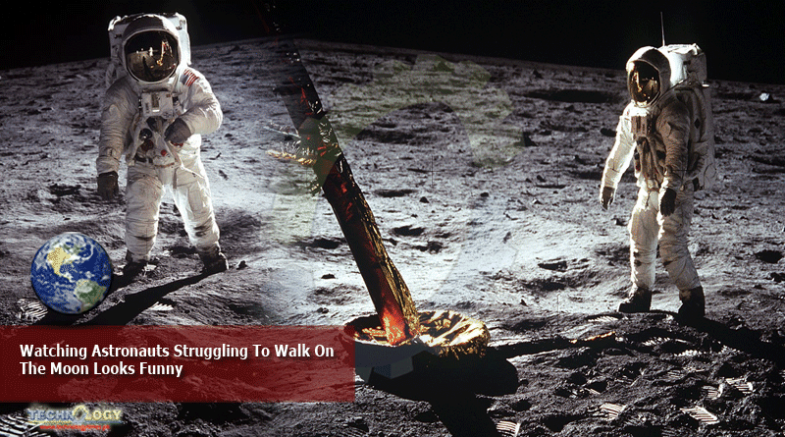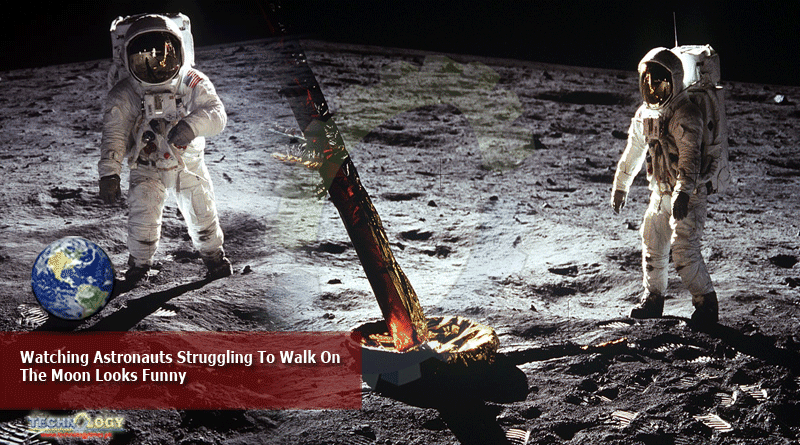Watching Astronauts Struggling To Walk On The Moon. Billions Of Dollars Are Spent Getting Them Up There

There’s something quite humbling in watching astronauts struggling to walk on the Moon. Billions of dollars are spent getting them up there, they put in years of training, sometimes delivering a speech that will echo through the ages, and when they finally get on the Moon they start stumbling around like newborn deer attempting to walk on Jell-O.
Getting used to the lack of gravity isn’t easy. On top of that, space travelers have to move in large bulky suits on what Buzz Aldrin once described as “moist talcum powder”. There have been dangerous moments as a result, like when astronaut Charlie Duke tried to be a little too athletic, and almost put himself in severe danger. In 1972, when he went to the Moon aboard Apollo 16, he and his commander decided to use the final minutes of their time on the lunar surface to do “Moon Olympics”. Their goal was to beat some human records of athleticism through cheating, using the Moon’s weaker gravity to their advantage.
During this, he leaped straight up into the air. Due to the weight distribution of the suit, this meant that he fell over, hard.
“The backpack weighed as much as I did. So I went over backward,” Duke told Business Insider last year. “It’s a fiberglass shell, and it contained all your life-support systems. If it broke, I was dead.”
He tried to correct his fall, but bounced onto his backpack, which fortunately survived the fall.
“My heart was pounding. John Young, my commander, came over and looked down and says, ‘That wasn’t very smart, Charlie.'” Duke continued. “And I said, ‘Help me up, John,’ and I got real quiet.”
Despite the danger, it’s hard not to admit that there’s something amusing about the way astronauts move on the Moon, especially when that footage is sped up, like in this video that has gone viral over the last few days.
This news was originally published at iflscience.com
